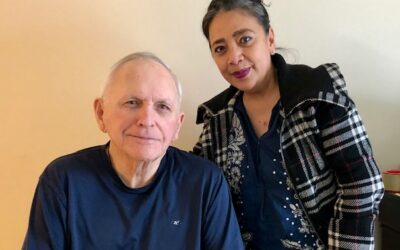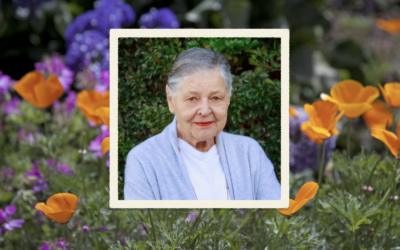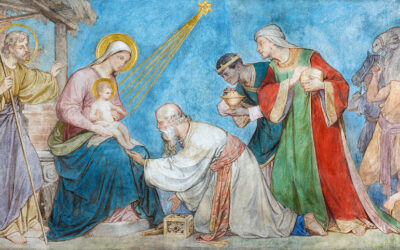Doug said he didn’t like Shakespeare: “too difficult.” Yet, he quoted Macbeth as he remembered reading every work of Faulkner when he was serving his country in Taiwan in 1967: “A tale told by an idiot, full of sound and fury, signifying nothing.” Towards the end of his life, it took a mighty heave from his whole body to get out one word at a time, a courageous effort signifying everything. Doug not only made each word count, he said the word is everything. What we take for granted, he put back in place.
With his cerebellar ataxia diminishing his body for the past sixteen years, and its attendant awkwardness, monumental frustrations and severe discomforts, Doug never complained. His stellar mind observed from the bluff of his body, watching the dizzy battlefield below – his arms that wouldn’t work, his legs askew, his muscle control, shattered, sundered, his vision blurred. Not a leader like Lord Cardigan, the inglorious, incompetent and neurotic commander of the Light Brigade (given command on April Fool’s Day, 1854), but the masterful mind of Douglas Smith, CPA, MBA, and Master of Tax Law, that powerful mind led, watched and ironcially participated in the tragic waste of his own body: his most beautiful purkinje cells from his cerebellum ran amok, went AWOL, deserting him.
From the many facets of his brilliant memory (and his extensive knowledge of military history), Doug returned again and again to Tennyson’s “Charge of the Light Brigade” (a poem he and Ted, his colleague in Taiwan used to quote), “theirs not to reason why.” The beat of the light brigade, “was there a man dismayed? Not though the soldier knew…theirs but to do and die,” that beat Doug knew so well. Like the six hundred, he, too, rode boldly into the “jaws of hell.” His return to this poem was no coincidence. Its ambivalent tone celebrating heroic valour while mourning its loss perfectly expressed Doug’s condition in that living valley of death.
He was proud of his English background, particularly his English grandfather who traveled the world and who became an artist in his latter years. Was it his favorite grandfather’s influence that explains Doug’s choice of architecture for his first two years of university? Only after his death, did Doug’s interest in art make better sense to me. He not only appreciated art; he was an artist. His sister has a collection of his sketches, paintings.
With the continual support of his wife, Jean, and his friends, Doug became a Catholic in this last year of his life. He christened himself the Trifecta because he received three sacraments in one go. However he came to his faith, he made clear the thread left by his Irish grandmother, Delilah Guffy, and perhaps answering the question, “did we come all this way for birth or death?”
Doug kept his sense of humor right to the end, recounting his favorite Mandarin phrase picked up in a Taiwanese bar, “my friend will pay.” Between Faulkner, the tax code and the Roman liturgy, Doug found beauty and made a line of order around himself. He was definite: “close that door, open this one.” Despite the ataxia (from the Greek, meaning ‘without order’), Doug did this.
Proudly and bravely, he offered his beautiful, brilliant neurologist, Dr. Jen (from UCLA and Taiwan), what was left of his purkinje cells as service to us all. Our friend did pay. How fitting that Doug died as the sun set on Christmas day.
















0 Comments